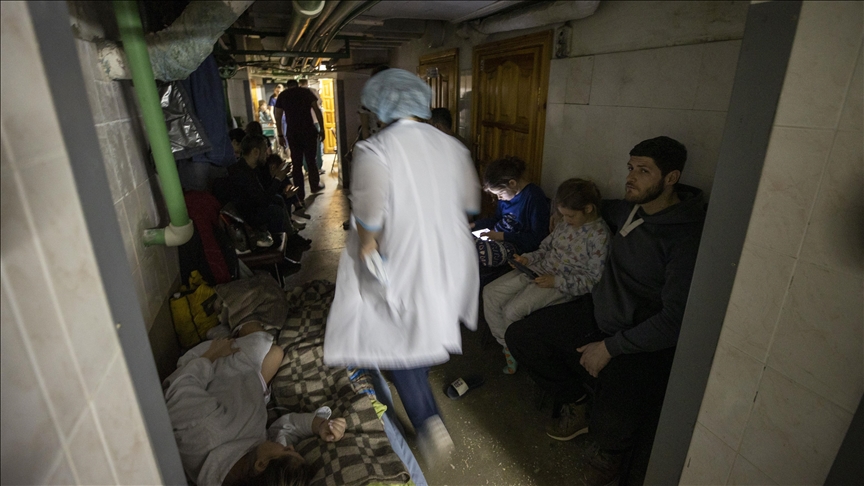WHO/Europe warned on Tuesday that the health system in Ukraine is under severe pressure and that the refugee crisis beyond its borders is the fastest growing crisis in 75 years.
“In these difficult days WHO’s priorities are threefold,” dr Hans Kluge, WHO/Europe Regional Director, said in a statement.
Firstly, WHO is working to get the health supplies that are needed into Ukraine, and ensure a sustainable system of safe passage for the delivery of humanitarian health supplies to where they are needed within the country. A first shipment of medical supplies arrived on Thursday last week at Warsaw airport, Poland, for delivery to Ukraine.
The shipment included 36 metric tonnes of supplies for trauma care and emergency surgery to meet the needs of 1,000 patients. Other health supplies will meet the needs of 150,000 people. Further shipments of 500 oxygen concentrators and more supplies are on their way, he said.
The first supplies are still in transit in Ukraine. A spokesperson told The Brussels Times that they are being moved around various locations in Ukraine, in close coordination with the Ukrainian Ministry of Health.
A second priority is to ensure that neighbouring countries have the infrastructure and expertise in place to meet the urgent health needs of those arriving. According to the latest figures from UN’s refugee agency (UNHCR), about 2 million people, the vast majority of them women and children, have fled the war in Ukraine since 24 February.
All those seeking refuge, including third-country nationals who had been residing in Ukraine, must be granted movement across Europe, according to WHO. The temporary protection mechanism which was adopted by the EU last week offer quick and effective assistance to people fleeing the war in Ukraine.
According to the decision, non-Ukrainian nationals and stateless people legally residing in Ukraine who cannot return to their country or region of origin, such as asylum seekers or beneficiaries of international protection and their family members, will also be granted protection in the EU.
Others who are legally present in Ukraine for a short-term and are able to return safely to their country of origins fall outside the scope of this protection. Nevertheless, they should be allowed access to the EU to transit prior to returning to their countries of origin.
WHO has deployed expert teams to Hungary, Poland, Moldova and Romania. WHO emergency response partner networks have also been mobilized, with 20 emergency teams already on the ground and more than 25 more poised to support.
They are working with UNHCR and coordinating closely with the relevant governments, local authorities and partners to assess the needs of incoming refugees upon entry at the border, build health system capacity to accommodate large numbers of refugees and ensure access to services.
The third focus at this moment is to provide support on immediate health requirements within Ukraine through a fully-functioning WHO operations centre on the ground in Ukraine. “We are responding to the urgent need for trauma and injury support with rapid refresher training, supplies and staffing through the mobilization of medical teams.”
Continuity of care for those with long-term health needs is a major challenge because broken supply lines are affecting the treatment of conditions such as diabetes and hypertension, as well as for cancer.
“Health workers, hospitals and other medical facilities must never be a target at any time, including during crises and conflicts,” Dr Kluge concluded. “To date, we have 16 confirmed reports of attacks in Ukraine, and more are being verified. WHO strongly condemns these attacks on health care services.”
The Brussels Times

